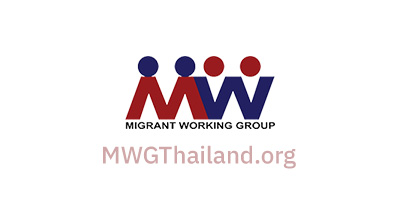
30 June 2017
The cabinet has endorsed the Royal Decree on the Management of Migrant Employment as proposed by the Ministry of Labour. It is aimed to serve the MoL’s goals, in particular to stem the violations of basic labour rights or the act of human trafficking against migrants. The law shall come into force on 23 June 2017.
After it has been effective, Migrant Working Group (MWG) has been informed of issues by both employees and employers regarding the enforcement of the law. The Royal Decree has led to additional measures on top of the previous laws including the Foreign Workers Act BE 2551 (2008) and the Royal Decree on the Placement of Foreign Workers with Employers in Thailand BE 2559 (2016). The new law imposes hefty penalties on both the employers and the employees who are found to have employed migrant workers and violated the law. It has brought about massive confusion among employees, employers and local officials involved with the employment.
MWG has found some employers have started to lay off their existing migrant employees, an increase of crackdown on the employees, arrests and deportations of a large number of workers. Legal loopholes have also been exploited by law enforcement officials to commit extortion against the workers and the employers. Therefore, MWG is calling on the government to urgently address the issues and to seek other alternative solutions other than severe labour crackdown since many problems have stemmed from a lack of clarity as to the policy for the management of migrant workers and how they are incompatible with root causes of the employment as follows;
1. The Royal Decree has been promulgated invoking Section 172 of the Constitution of the Kingdom of Thailand which provides that the cabinet can issue a Royal Decree ”for the purpose of maintaining national or public safety or national economic security…”. The issuance of such Emergency Decree shall be made only to apply for “an emergency of necessity and urgency which is unavoidable.
MWG has found that the management of migrant workers does not constitute “an emergency of necessity and urgency which is unavoidable” which can be invoked to issue the Royal Decree. In addition, in light of the Royal Decrees issued invoking the previous Constitution, the administration or the cabinet had avoided to exercise such legislative power save for the laws to cope with urgent vulnerabilities as to national security.
Therefore, the government should thoroughly listen to opinions from various sectors and rely on solid evidence and research in order to improve the existing laws. It also serves the interest of the government to put in place a law concerning the management of employment of migrants as a whole and to ensure decent work and sustainable development.
2. MWG has found the new law imposes much more severe punishment than the previous ones. Such increase of penalties includes an increase of fine and prison term. Such a change may induce more corruption and violation of the law and would render massive impact on the businesses that employ migrant workers. Meanwhile, the channels through which legal employment of migrant workers can be done including the MoU arrangement to import workers from the sending countries have been fraught with problems. In addition, the penalty rates between employees and employers are found to be different. For example, for an employee who is found to have worked without permission, they would be punishable by an imprisonment or a fine, whereas, for an employer who has violated the law, they shall be punishable only by a fine. This could be construed as discrimination. MWG, therefore, calls on the government to review such harsh punitive measures and to do away with imprisonment.
3. Crackdowns on and arrests of migrant workers should be suspended while clear policy and measures are developed and put in place to ensure the same enforcement of the laws of all officials in different areas. Security and administrative agencies should be formally told to be careful when conducting any crackdown on migrant workers since the law has suddenly been changed and an effort is needed to ensure that all officials at the practical level are sufficiently informed of how to execute the law and all stakeholders have to be informed as well. A number of workers also need more time to get adjusted in terms of their immigration status and the right to work, the right to stay in Thailand. Otherwise, they would be made be vulnerable to widespread arrests and crackdowns.
4. An emergency measure should be put in place to ensure migrant workers and business operators that the new initiative regarding the management of migrant workers shall not affect their employments. This is to stem an exodus of migrant workforce since there have been rumors about arrests of migrant workers in various areas, an incidence of which once happened in 2014.
5. We urge the government to review the recommendations made by MWG and submitted to the Prime Minister and Minister of Labour since 24 May 2017. The recommendations have been derived from feedback of participants in a public forum regarding the Draft Royal Decree on 15 May 2017. Among the participants were representatives from state and private agencies including business operators, employees, Industrial Chamber, academics, labour activists, NGOs, and lawyers.
With respect in human rights and human dignities
Migrant Working Group (MWG)
For more information, please contact Mr. Adisorn Kerdmongkhol, Coordination of Migrant Working Group (MWG), phone 089 788 7138 or email [email protected]
